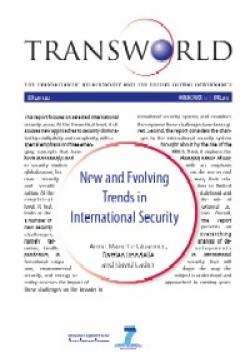New and Evolving Trends in International Security
This report focuses on selected international security areas. At the theoretical level, it discusses new approaches to security dominated by multiplicity and complexity, with a special emphasis on three emerging concepts that have been increasingly used in security studies: globalization, human security and securitization. At the empirical level, it first looks at the a number of new security challenges, namely terrorism, health pandemics, international migration, environmental security, and energy security; assesses the impact of these challenges on the broader international security system; and examines the response these challenges have been given. Second, the report considers the changes to the international security system brought about by the rise of the BRICS. Third, it explores the changing nature of war, with an emphasis on the rise in civil wars, their relation to limited statehood and the role of external actors. Overall, the report presents an overarching analysis of developments in international security that will shape the way the subject is understood and approached in coming years.
Paper produced within the framework of the IAI project Transworld.
-
Details
Roma, Istituto affari internazionali, 2013, 47 p. -
Issue
13
1. Introduction
2. The New Parameters of International Security: Conceptual Introduction, Bastien Irondelle
References
3. Evolving Threats and New Security Domains, Bastien Irondelle and David Cadier
3.1 International Terrorism
3.2 Health and Pandemics
3.3 International Migration
3.4 Environmental Security
3.5 Energy Security
3.6 Conclusions
References
4. Preserving or Compromising International Security? The Role of the Rising Powers, Nelli Babayan
4.1 Introduction
4.2 The Military Strength of the BRICS
4.3 Regime Type: Aspiring Democrats and Reluctant Autocrats
4.4 The Foreign Policies of the BRICS
4.5 Conclusion: the King is Dead, Long Live the Kings?
References
5. New Forms of War and Intervention: Civil Wars, Areas of Limited Statehood, and the Role of External Actors, Thomas Risse
5.1 Introduction
5.2 Causes of Civil War: Grievances, Greed, and Opportunities
5.3 Civil Wars and Limited Statehood
5.4 Ending Civil Wars: The Role of External Actors
References
6. Conclusions, Anne-Marie Le Gloannec



